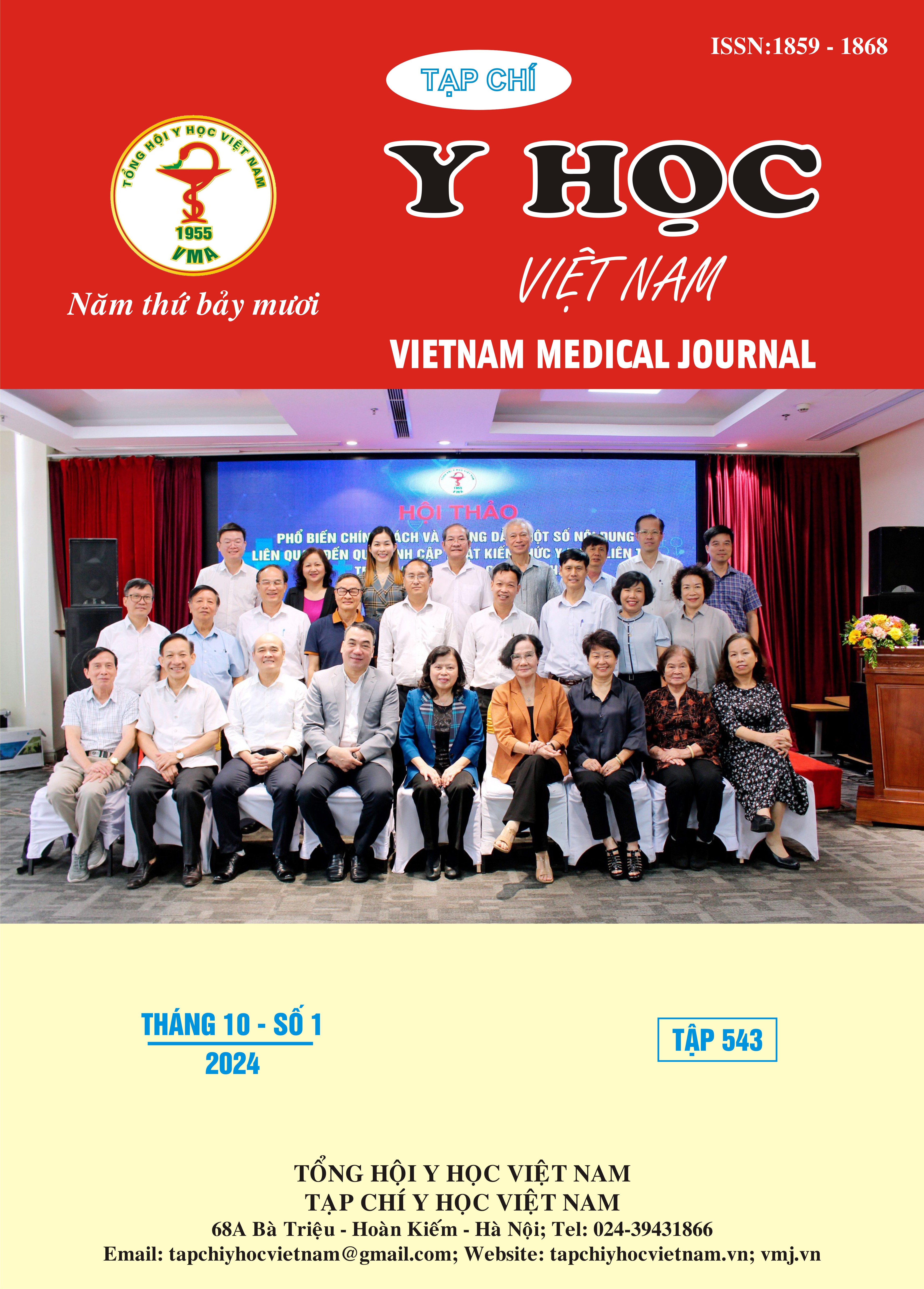PREVALENCE OF SLEEP DISTURBANCES IN ALZHEIMER'S PATIENTS
Main Article Content
Abstract
Background/Aims: Sleep disturbances are a common symptom in Alzheimer's patients, affecting the quality of life of both the patients and their caregivers. The aim of this study was to describe the prevalence of sleep disturbances in patients with Alzheimer's disease. Methods: This was a cross-sectional descriptive study conducted on 137 Alzheimer's patients treated at Bach Mai Hospital and the National Geriatric Hospital Vietnam. Results: The majority of patients in the study had sleep disturbances (69,3%). Sleep disturbances occurring after the onset of Alzheimer's symptoms were the most prevalent (47,4%). The common types of sleep disturbances in Alzheimer's patients in the study were circadian rhythm sleep-wake disorders (51,1%), insomnia disorder (47,4%), and obstructive sleep apnea (36,5%). Restless legs syndrome had a small prevalence rate (6,6%). Conclusion: Sleep disturbances are a frequent symptom in Alzheimer's patients. The common types of sleep disturbances in Alzheimer's patients are circadian rhythm sleep-wake disorders, insomnia, and obstructive sleep apnea, while restless legs syndrome is less common.
Article Details
Keywords
Alzheimer's disease, sleep disturbances.
References
2. Nguyễn Đình Nam. Đặc điểm triệu chứng tâm thần ở bệnh nhân Alzheimer. Luận văn Thạc sĩ y học, chuyên ngành Tâm thần, Trường Đại học Y Hà Nội; 2021.
3. Duara R, Barker W. Heterogeneity in Alzheimer’s Disease Diagnosis and Progression Rates: Implications for Therapeutic Trials. Neurotherapeutics. 2022;19(1):8-25.
4. Guarnieri B, Adorni F, Musicco M, et al. Prevalence of sleep disturbances in mild cognitive impairment and dementing disorders: a multicenter Italian clinical cross-sectional study on 431 patients. Dement Geriatr Cogn Disord. 2012; 33(1):50-58.
5. Zhou G, Liu S, Yu X, Zhao X, Ma L, Shan P. High prevalence of sleep disorders and behavioral and psychological symptoms of dementia in late-onset Alzheimer disease: A study in Eastern China. Medicine (Baltimore). 2019;98(50):e18405.
6. Tang M, Wu L, Shen Z, et al. Association between Sleep and Alzheimer's Disease: A Bibliometric Analysis from 2003 to 2022. Neuroepidemiology. 2023;57(6):377-390.
7. Li P, Gao L, Gaba A, et al. Circadian disturbances in Alzheimer's disease progression: a prospective observational cohort study of community-based older adults. The lancet Healthy longevity. 2020;1(3):e96-e105.
8. Homolak J, Mudrovčić M, Vukić B, Toljan K. Circadian Rhythm and Alzheimer’s Disease. 2018; 6(3):52.


